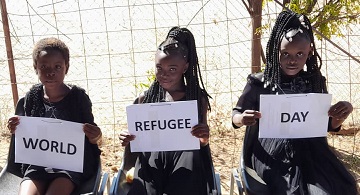
Namibia remains committed to receiving and protecting asylum seekers: Official

The country remains committed to receiving and protecting asylum seekers by the provisions of international law, a government official said Tuesday as the southwestern African nation joined the rest of the world in commemorating World Refugee Day.
“My office is committed to providing support and protection to asylum seekers and refugees. Recently, a Joint Assessment Mission consisting of UN agencies and government departments converged here in Osire Refugee Settlement to map out strategies towards improving food self-reliance in the settlement,” Namibia’s Commissioner of Refugees, Josephine Nghimtina said in a statement.
According to Nghimtina, this initiative is one of the milestones as it is aimed at improving food security for asylum seekers and refugees.
“As a government together with UNHCR, we have identified this initiative based on the current situation that poses a serious humanitarian threat to asylum seekers, refugees, and stateless persons. The war in Ukraine, Syria, the Democratic Republic of Congo, and now in Sudan is a serious matter of concern for us as a government,” she noted.
Nghimtina meanwhile noted that countries need to reflect more on the key demographic populations who are women and children that bear the terrible brunt of displacement.
“Although this is a challenge facing the globe, I ask women, asylum seekers, not to lose hope, let us continue playing our mother roles,” she added.
The theme for this year’s commemoration was “Hope away from home” and it was commemorated at Osire, a refugee camp in central Namibia, situated 200 km north of the capital Windhoek. It was established in 1992 to accommodate refugees from Angola, Burundi, the Democratic Republic of the Congo, Rwanda, and Somalia.












































